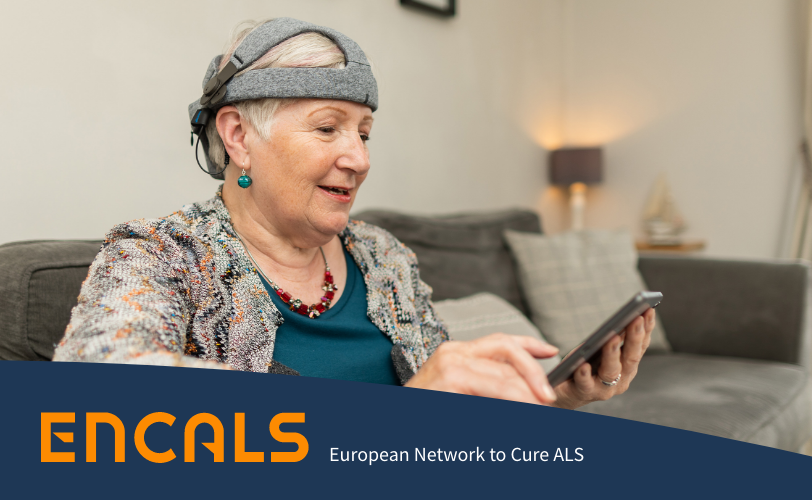First published: 12th July 2023

Cumulus Neuroscience presented interim data from their first-in-class CNS-102 feasibility study at the European Network to Cure ALS Annual Meeting (ENCALS) in Barcelona, Spain. Using the proprietary Cumulus Neuroassessment Platform to gather data via repeated at-home sampling, the study is being conducted in collaboration with the PRECISIONALS initiative , a Science Foundation Ireland academic industry collaboration hosted by Trinity College Dublin.
Cumulus presented a poster titled, "Patient and technical feasibility of real-world sampling of cognition and functional neurophysiology in Amyotrophic lateral sclerosis (ALS) and frontotemporal dementia (FTD)," which featured data demonstrating that patients living with ALS and FTD are willing and able to participate in decentralized clinical trials that include intensive, repeated sampling protocols. The study also demonstrated that digital remote measurements can be used to stratify healthy subjects and patients, providing positive evidence for task validity and technical feasibility.
"We are encouraged by the analysis from our CNS-102 feasibility study, which confirms that patients living with these devastating conditions are willing and able to participate in home-based studies with intensive protocols."
Brian Murphy, Ph.D.
CSO, Cumulus Neuroscience
“Detection of cognitive or behavioral changes in patients living with ALS or FTD can be challenging during clinical visits due to a variety of factors including fatigue and white coat syndrome,” said Brian Murphy, PhD, Founder and Chief Scientific Officer of Cumulus. "We are encouraged by the analysis from our CNS-102 feasibility study, which confirms that patients living with these devastating conditions are willing and able to participate in home-based studies with intensive protocols. We are deeply grateful to the patients, caregivers and collaborators who dedicated their time to this important first-in-class study.”
Trinity Biomedical Science Institute (TBSI) and PRECISIONALS presented a second poster featuring CNS-102 data titled, “Longitudinal cognitive assessment using the Cumulus home-based EEG platform in ALS and FTD,” which featured data confirming that the Cumulus Neuroassessment Platform can identify cognitive deficits in these patient groups.
“The results of CNS-102 provide preliminary evidence that the Cumulus platform can identify cognitive deficits across these patient groups,” said Professor Orla Hardiman, Head of the Academic Unit of Neurology, Lead Investigator of PRECISIONALS and CNS-102 Principal Investigator. “Importantly, across study cohorts we saw very high rates of successfully completed sessions, which confirms that the platform is patient friendly and easy to use.”
In the CNS-102 Study Design, patients with ALS (N=10), FTD (N-7), and healthy controls (N-10) were recruited for an 8-month repeated sampling study. Participants completed the Edinburgh Cognitive and Behavioral ALS Screen (ECAS) and a full neuropsychological assessment at baseline, 4 months, and 8 months. Concurrently, participants were required to complete three 25-minute sessions every 2 weeks at home, using gamified tasks to assess multiple domains of brain function (affective processing, language, executive function, memory, and motor skills) while synchronized EEG was recorded using the Cumulus 510K-cleared self-applied dry-sensor headset. Key behavioral and EEG endpoints were evaluated cross-sectionally based on data from the first five sessions for each assessment.
ALS is a progressive neurodegenerative disease that affects nerve cells in the brain and spinal cord. In ALS, the motor neurons responsible for controlling voluntary muscle movement degenerate and die, leading to a gradual loss of muscle control, affecting the ability to speak, eat, move, and eventually breathe. Currently, there is no known cure for ALS, and the disease is typically fatal.i FTD (Frontotemporal Dementia) is a rare group of degenerative brain disorders that primarily affect the frontal and temporal lobes of the brain, leading to progressive loss of language, behavioral changes, and difficulty with decision-making and emotional regulation. It often affects people under the age of 65 and can be challenging to diagnose due to its varied symptoms. There is currently no cure for either of these conditions and treatment is aimed at managing symptoms and improving quality of life.ii Ongoing research is needed to develop effective treatments for both conditions.
iNaqvi E. Als facts and Statistics. ALS News Today. March 20, 2019. Accessed July 5, 2023. https://alsnewstoday.com/als-facts-statistics/
iiFrontotemporal Dementia (FTD). Alzheimer’s Society. June 1, 2023. Accessed July 5, 2023. https://www.alzheimers.org.uk/about-dementia/types-dementia/frontotemporal-dementia